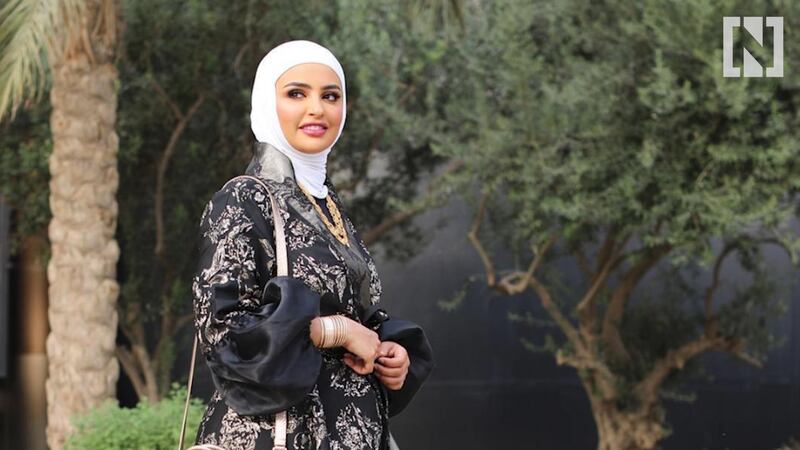Just because you have millions of followers, doesn’t make you right. And just because you wear a hijab, doesn’t mean you can say whatever you want without being scrutinised. But most of all, if you have a public platform and use it to build your brand and business, you should expect to be fully accountable for what you say.
This is the story of Kuwaiti blogger Sondos Al Qattan, her comments about Filipino domestic workers and the subsequent backlash.
What we should hope for from this sorry tale is that it becomes a turning point in our public conversation, shedding light on serious social problems surrounding domestic workers’ rights and true empowerment for all women.
After complaining to her 2.3 million followers about maids having one day off each week and holding on to their own passports, because if they run away “who will refund me?”, Ms Al Qattan sought to silence her critics by explaining that she does pay her workers and doesn’t beat them.
This hardly seems worth applauding. I’d hope Ms Al Qattan can see the irony in fighting for her own autonomy while being complicit in crushing that of other women.
She has been dropped by the beauty brands for whom she acts as an ambassador. While comments on her social media are blocked, she has just posted images of herself decked in a heavy gold necklace and bangles. From someone who has quibbled about a domestic worker's day off and "refunds", the pictures seem distasteful.
The first result of this episode must be that protecting the rights of workers is put firmly on the agenda. But more significantly, the respect and perception of workers must radically shift. They are not objects, but real human beings.
Ms Al Qattan has also just released a statement asking why her critics are not talking about humanitarian crises elsewhere. It's simple: to say that one day off a week is excessive, to hold a worker's passport so they can't "escape" and to demand a refund in exchange for a human being is a humanitarian crisis.
Next, she has claimed that the criticism she's facing is an attack on Kuwait, the hijab and Islam as a whole. She's wrong. This is a criticism of Ms Al Qattan's specific and toxic attitudes, which as it happens are in contravention of Islam's guidelines on treating people with respect and dignity.
___________________________
Read more from Shelina Janmohamed:
Today too many men are migrating to the dark side
Make your selfies the souvenir, not the experience, at this year's Hajj
This week a group of online trolls tried to drive me from public life. I won't let them win
___________________________
There are many women like Ms Al Qattan who in the past decade have orchestrated a positive shift in the public presence and depiction of Muslim hijabi women. This has been a welcome development.
And yet while a Muslim hijabi might be breaking down barriers and prejudice, she can still be complicit in the oppression of others.
The bottom line is this. Building your own "liberation" on the backs of others is not a form of empowerment. Influencers and advocates (whether explicit or implicit) of freeing women from traditional constraints – as the rise of the female Muslim hijabi influencer has been all about – cannot do so at the expense of other women.
And just because you are female, Muslim, brown, Arab or hijabi and therefore suffer systemic discrimination – including abuse levelled at the hijab to justify Islamophobia – it doesn't mean you can't be a proponent of systemic injustice. If women who are "breaking barriers" are to mean anything, then it means breaking them for everyone.
This is a very clear example of how privilege comes in different guises. Once can be both discriminated against and a perpetrator of inequality, at the same time. As women, we need to avoid building our own "freedom" and "equality" off the backs of other women.
And so if freedom and equality for women is to mean anything, it must mean women interrogating their own actions.
Dear Ms Al Qattan, as hard as it is to admit, the comments you made equated human beings to objects. Your hijab, your millions of followers and the many barriers you might have demolished don’t offer immunity from holding views which – and I’m sorry to use harsh words – are utterly abhorrent.
Please don’t hide behind your hijab. You have a chance here to do some soul searching and then to use your platform to make a truly radical transformation to the lives of millions of people and to make a paradigm shift in one of our most urgent global conversations about the rise of modern slavery.
If you are truly in the business of influencing to make life better for women, by changing opinions, then the first one you need to change is your own.
Shelina Janmohamed is the author of Love in a Headscarf and Generation M: Young Muslims Changing the World





